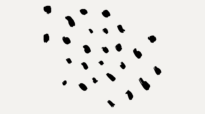Virtual Presentation of Case Studies
• Your virtual presentation will take place over Zoom.
• The presentation will begin with introductions from your three RGD Evaluators.
• You will then have 30 minutes to present the three Case Studies from your application.
• You are asked to spend 10 minutes on each Case Study outlining the Context and Design Process through to the Solution for each project.
• You will also be asked to articulate your role on each project and how you demonstrated professional standards through your work.
• After you have presented, RGD Evaluators may ask you questions about your work.
• The entire session may take up to one hour.
• You will have the opportunity to book a virtual meeting with an RGD staff person in advance of the Presentation to test meeting software compatibility, review the presentation process and ask any questions.
Examples of Certified RGD Case Studies


Emma Tarswell RGD, Caroline Toth RGD, Olivia Burton RGD, Diana Castaneda RGD


Kerri MacLeod RGD, Alona Topolnisky RGD, Sabrina Young RGD, Olu Abiola


Ronald Tau RGD, Kailey Scott RGD, ADELEKE ALADEKOBA, Jordan Bamforth RGD
I believe designers are stronger together, and the sense of belonging, understanding and community is undeniable at RGD. I value higher standards in our practice, because it means good work done in good faith is being put out into our world.Lawrence Ly RGD, Service Designer, Healthcare Human Factors













